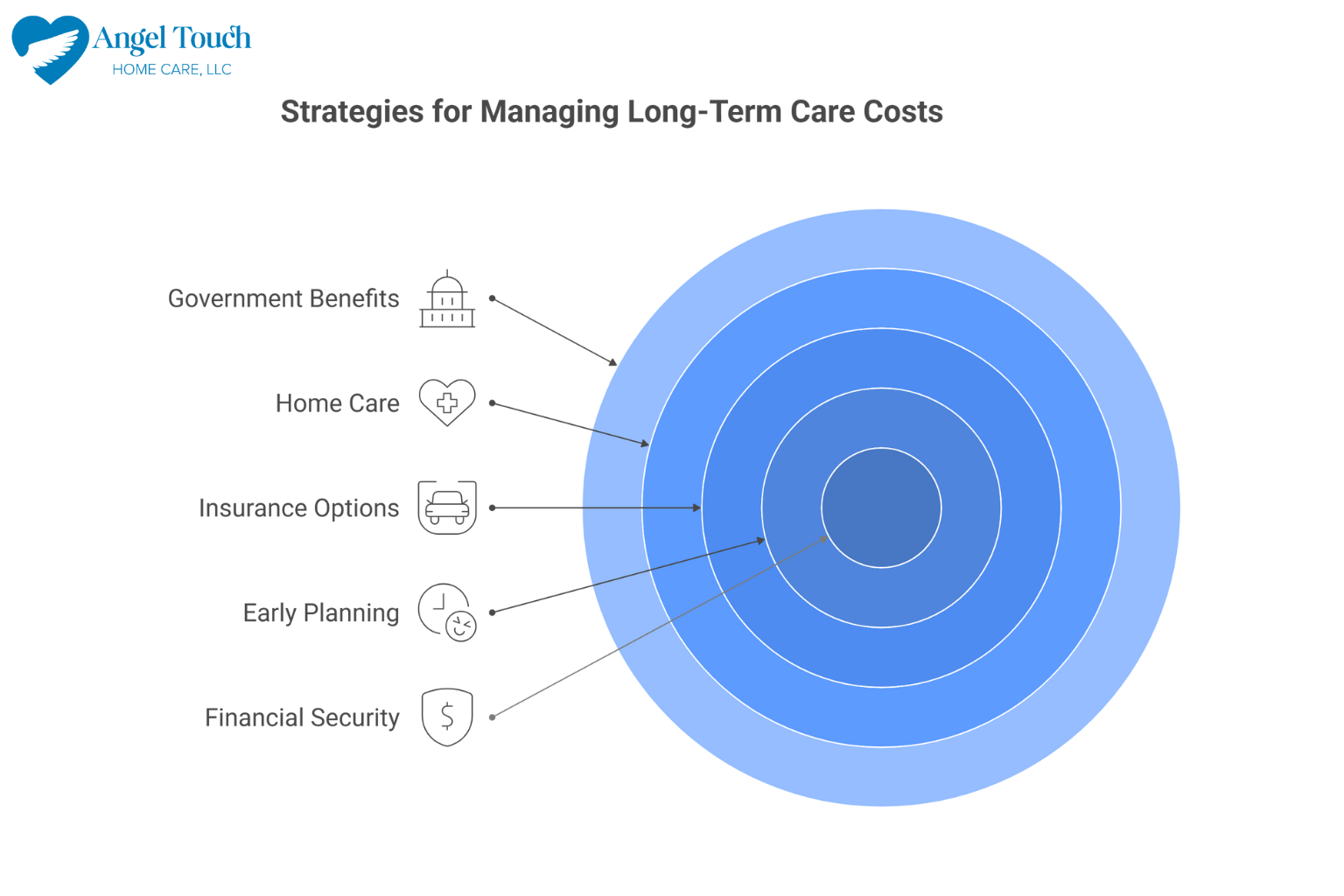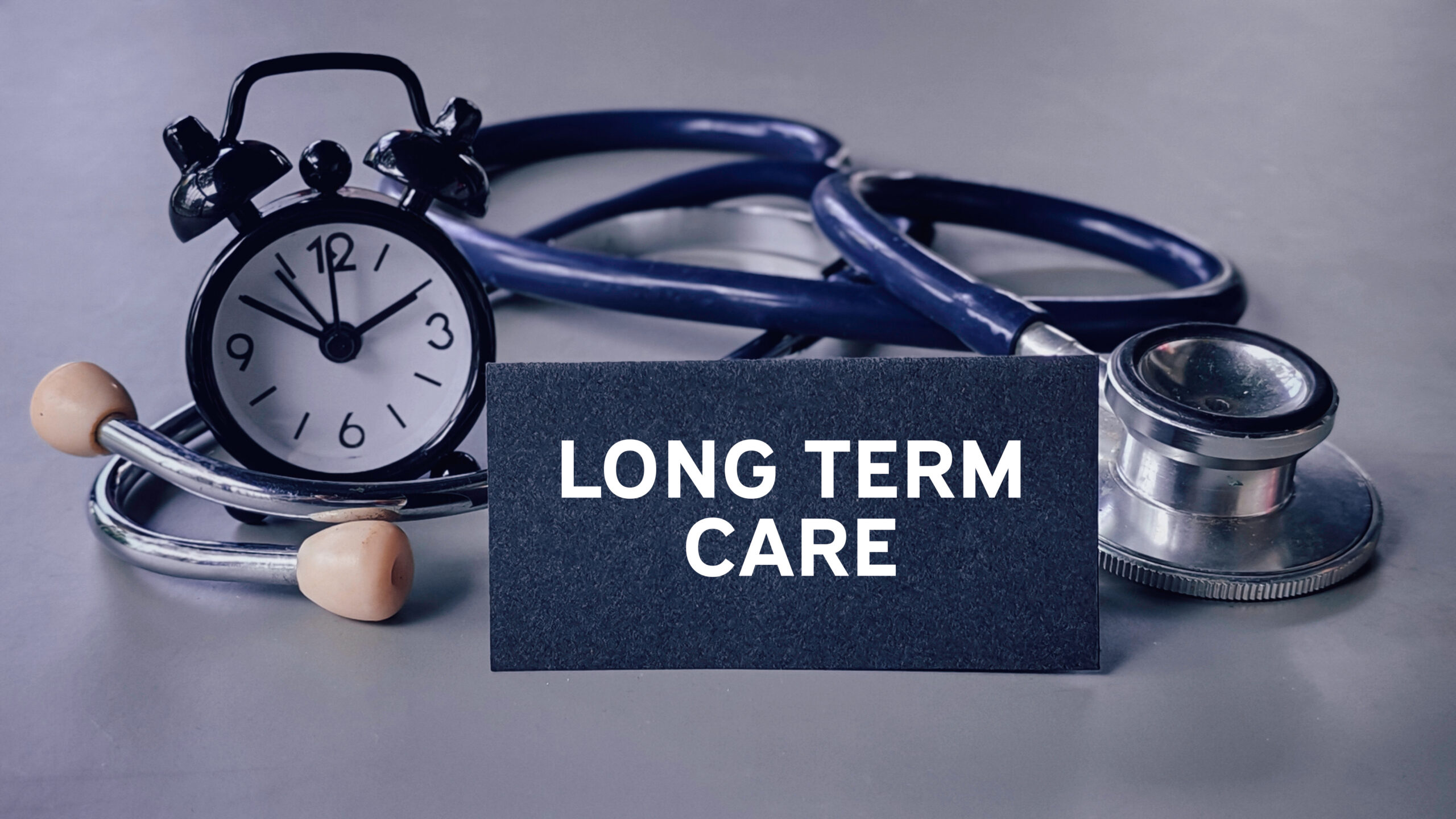Long-term care expenses can quickly drain retirement savings, making financial planning essential for protecting your future. Understanding your options and preparing early can help you maintain independence while managing these significant costs effectively.
Start Planning Early for Maximum Savings
The earlier you begin planning for long-term care, the more options you’ll have to manage costs. Starting in your 50s or early 60s gives you time to:
- Build a dedicated long-term care savings fund
- Research and compare insurance options while premiums are lower
- Make home modifications gradually to age in place
- Explore different care communities before you need them
Early planning also allows you to take advantage of compound interest on savings and lock in lower insurance rates when you’re healthier.
Many seniors prefer aging in place over moving to assisted living facilities. If you or your senior loved one needs assistance to remain safe and comfortable while living at home, reach out to Angel Touch Home Care, a leading homecare services agency. Our dedicated in-home caregivers can assist with meal prep, bathing and grooming, exercise, medication reminders, and many other important tasks.

Explore Long-Term Care Insurance Options
Long-term care insurance can significantly reduce out-of-pocket expenses, but policies vary widely in coverage and cost. Consider these types:
- Traditional long-term care insurance provides the most comprehensive coverage but requires ongoing premium payments that can increase over time.
- Hybrid life insurance policies combine life insurance with long-term care benefits, offering flexibility if you never need care.
- Annuities with care riders provide income while offering enhanced benefits if long-term care becomes necessary.
When evaluating policies, pay attention to daily benefit amounts, benefit periods, and elimination periods. Many policies also include inflation protection, which helps you maintain purchasing power over time.
Consider Home Care and Aging in Place
Staying in your own home often costs less than facility care while providing comfort and familiarity. Home care options include:
- Family caregivers who can provide basic assistance
- Professional home health aides for personal care needs
- Adult day programs that offer supervised activities and social interaction
- Home modifications like ramps, grab bars, and accessible bathrooms
Many communities also offer senior services like meal delivery, transportation, and housekeeping that help people remain independent longer. Veterans may qualify for Aid and Attendance benefits that help them cover home care costs.
Many older adults are choosing to age in place, and some need a helping hand to continue living at home safely and comfortably. Luckily, there is professional home care Boca Raton seniors can trust and rely on.
Research Government Benefits and Assistance Programs
Several government programs can offset long-term care expenses, though each has specific eligibility requirements:
- Medicaid covers long-term care costs for those who meet income and asset limits. Planning strategies can protect some assets while qualifying for coverage.
- Medicare provides limited coverage for skilled nursing care and home health services following a hospital stay but doesn’t cover custodial care.
- Veterans benefits offer additional support for qualifying veterans and their spouses, including Aid and Attendance benefits that can pay for care.
- State programs may also provide additional assistance, respite care for family caregivers, and other supportive services.
Develop a Family Care Strategy
Family involvement can significantly reduce long-term care costs while providing personalized attention. Creating a family care plan involves:
- Discussing care preferences and expectations openly
- Identifying which family members can provide different types of assistance
- Understanding the physical and emotional demands of caregiving
- Planning for respite care to prevent caregiver burnout
Some families choose to hire professional caregivers to supplement family care, while others modify homes to accommodate elderly relatives. Consider the tax implications and potential caregiver agreements that formalize arrangements and protect everyone involved.
Whether you need respite from your caregiving duties or your aging loved one needs live-in care, Boca Raton, FL, Angel Touch Home Care can meet your family’s care needs. Our dedicated caregivers are available around the clock to arrange transportation to doctor’s appointments, ensure seniors take their prescribed medications, and help with a variety of tasks in and outside the home. To learn more about our highly trained caregivers, call us today.



